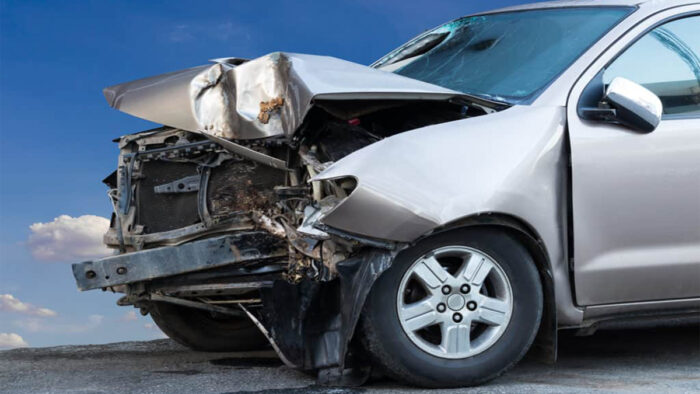Some of the questions you may seek answers to when your bumper is damaged include whether to file an insurance claim for bumper damage that would help cover the cost of repairs. The answer to whether you should file an insurance claim for bumper damage depends on several factors. For minor bumper damage that does not cost much to repair, the cost will be less than your insurance deductible.

Hence, you may not necessarily need to file an insurance claim. However, in a case where a major bumper is damaged, you may refer to your insurance.
In both cases, you may need to weigh your insurance coverage options to determine whether or not you should file an insurance claim for bumper damages.
When Should You File a Claim for Bumper Damage?
Highlighted below are a few instances that may require you to file a claim for bumper damage:
- If you’re not at fault for the cause of the accident, you can file a claim for bumper damages. You can contact your insurance provider and narrate your ordeal. It is their responsibility to reach out to the other driver’s insurance provider and try to get liability coverage.
- When you’re unable to afford the expenses of repair and replacement, the cost of repairing damages done to your bumper can be relatively higher than your deductible, so filing a claim will be the best option.
- When you have to pay liability coverage for the other party, like medical bills and other expenses. You should contact your insurance provider and file a claim for that.
When should you not file a claim for bumper damage?
There are certain circumstances of a fender bender collision that may cause other problems for your insurance provider. Hence, we have curated some instances when you should not file a claim for bumper damage. You should not file a claim for bumper damage in a situation where:
- Only your vehicle was damaged. If the accident wasn’t caused by another driver, you don’t have to pay for liability. You can decide to cover the costs of repairs out of your personal pocket. If you do not have full coverage, you should not consider filing a claim for bumper damage.
- You’re at fault for the collision that resulted in the bumper damage.
- You’ve had a recent claim in the last three or five years. Filling out a claim for bumper damage will mark you as a high-risk driver and will automatically increase your insurance rate.
If you are able to cover the cost of repairing damages done to your bumper, you should reconsider filing a claim.
FAQs
Will filing a claim for bumper damage increase my insurance premiums?
Yes, it would. If you file a claim for bumper damage, it will lead to a drastic increase in your insurance premiums, especially for those who have filed several claims in subsequent years and if you’re responsible for the damage done to your bumper.
It is important that you consult your insurance provider in order to get a better understanding of how filling bumper damage can influence our premiums.
What information am I expected to provide when filing a claim for bumper damage?
Individuals who intend to file a claim for bumper damage will have to provide clear details about the incident, including the date and time it occurred, the location of the damage, photos that prove the damage, witness statements, and other descriptions that can attest to the authenticity of their claim.
Should I get an estimate before filing a claim?
Yes, we advise that before filing a claim for bumper damage, you should obtain an estimate for the cost of repairs. This will enable you to assess if the cost of repairs exceeds your deductible and if you should proceed with filing a claim. Before this claim is approved, some insurance providers will ask you to give an estimate of the repair cost.
How long does it take to process a claim for bumper damage?
The answer to this question depends on two factors: your insurance provider and the complexity of the bumper damage. There are certain claims that are relatively quick to process, while others may require more time. It is best to consult your insurance provider to have a better understanding of the waiting period.
What if the damage is minor? Should I still file a claim?
If the bumper damage is a minor one that does not attract a high repair cost, it is advisable not to file a claim. Those who file claims for minor damage should be prepared to accept the increase in their premium rates.



